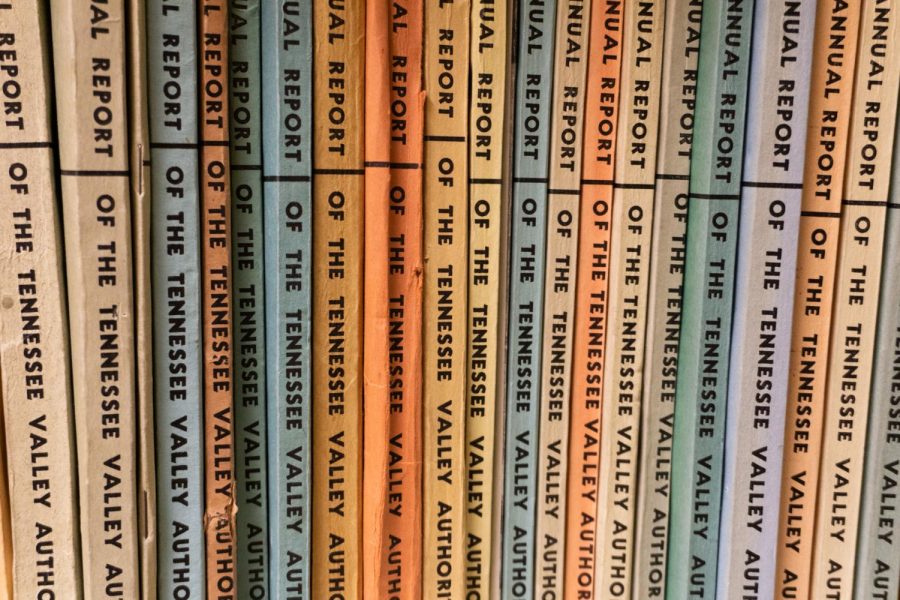Penrose guided by Library Advisory Committee
One of the lesser-known functions of the Penrose Library is the intellectual property project which compiles online informational resources on copyright and patenting processes.
November 14, 2019
Penrose Library is one of the most widely used academic resources on campus — a place where students do homework, print between classes and check out books. However, the administration of the library, as well as its new policies and projects, are all managed by a little-known committee. Penrose Library’s faculty and student advisory board, the Library Advisory Committee (LAC), is one of the Whitman College community’s vital representative forces.
The LAC is responsible for suggesting and reviewing library policy; such policy includes the library’s current hours of operation, acquisition of new titles, electronic cataloging system and the discarding of outdated items.
The committee is made up of three faculty from each academic division (Social Sciences, Humanities and Arts, Natural Sciences and Mathematics) who are elected to the committee by other faculty members, one student who is appointed at the recommendation of ASWC, Chief Information Officer Dan Terrio and Library Director Dalia Corkrum.
While Library Director Dalia Corkrum does not know the exact age of the committee, she confirms that it has been part of the faculty code for more than half a century. For most of the committee’s history, the group was made up of two representatives from every academic department who were appointed by external administrative faculty. Members became committee-appointed just around 10 years ago. According to the present faculty code, one faculty member is elected from every academic department, and there is always a student member on the committee.
As the director of the library, Corkrum said she holds principal responsibility for library policy. The committee can suggest or endorse that policy and ensures that community voices are heard.
The committee is not well known among students, however. Corkrum noted that student members have not always effectively represented the interests of all students.
“Like any committee, it’s only as good as its members,” she said.
When the library decided to reduce its weekend hours from a 24/7 schedule, library statistics showed that the library was infrequently used on Friday and Saturday nights after 11 p.m.. Corkrum, with the endorsement of Provost and Dean of the Faculty Alzada Tipton and the LAC, decided to close the library at those times. Because all students would be affected by this change, Corkrum said she was grateful for the student feedback she received on the issue.
“If [the students] are not there it’s very difficult to have that broader conversation,” Corkrum said.
According to Corkrum, because library policy affects all of Whitman, both the committee and library director need representative student feedback in order to function effectively.
Associated Students of Whitman College (ASWC) President and senior Isaiah Banta agrees that the LAC is the best way for students to have a say in the activities of Penrose Library.
“Yeah, students should care about the Library Advisory Committee,” Banta said. “Students should care about all our senate advisory committees because they allow us to have a say in our community.”
Sophomore Allie McCann, ASWC Chair of Nominations and Appointments, seconded Banta’s sentiments on the importance of the committee. 
“Like all the other advisory committees nominations hires students for, it is a space that allows students’ voices to be heard and ultimately ensures that different parts of our campus, like Penrose, reflect student needs,” McCann said.
Corkrum notes that the LAC is responsible for policies other than library hours. She mentioned the Library Advisory Committee’s current project of providing information on intellectual property law and patenting process as a policy that has long-lasting ramifications for the college community.
The LAC’s intellectual property project consists of online informational resources compiled to help Whitman College-associated people lawfully use the intellectual property of others as well as protect their own. People associated with the College have patented notable technologies in the past, such as Wallace R. Brode, inventor of ball-and-stick molecule models; Walter H. Brattain, inventor of the transistor; David R. Nygren, inventor of key technologies for particle physics research; and Webb Miller, one author of BLAST, a computer program for searching the human genome.







